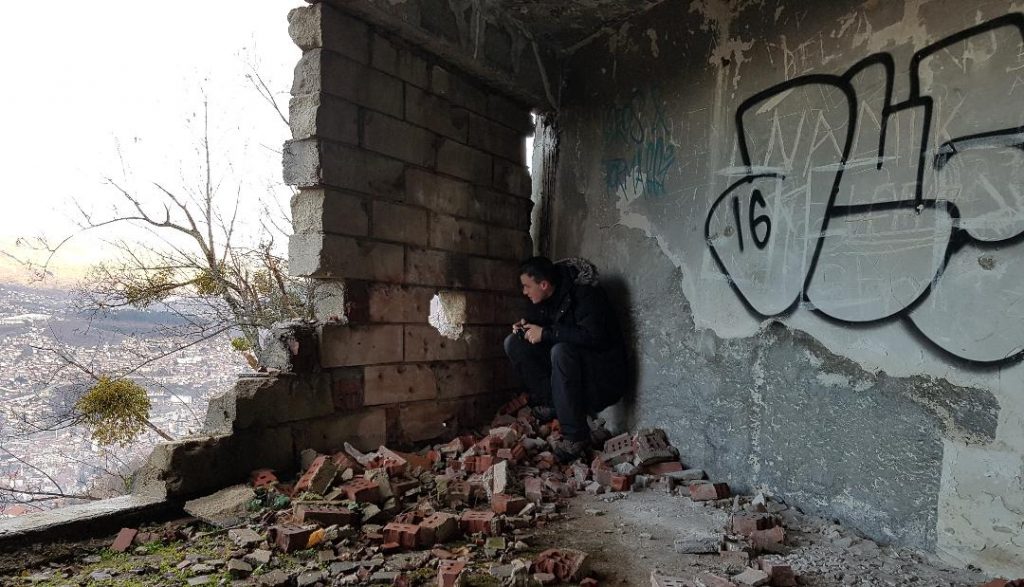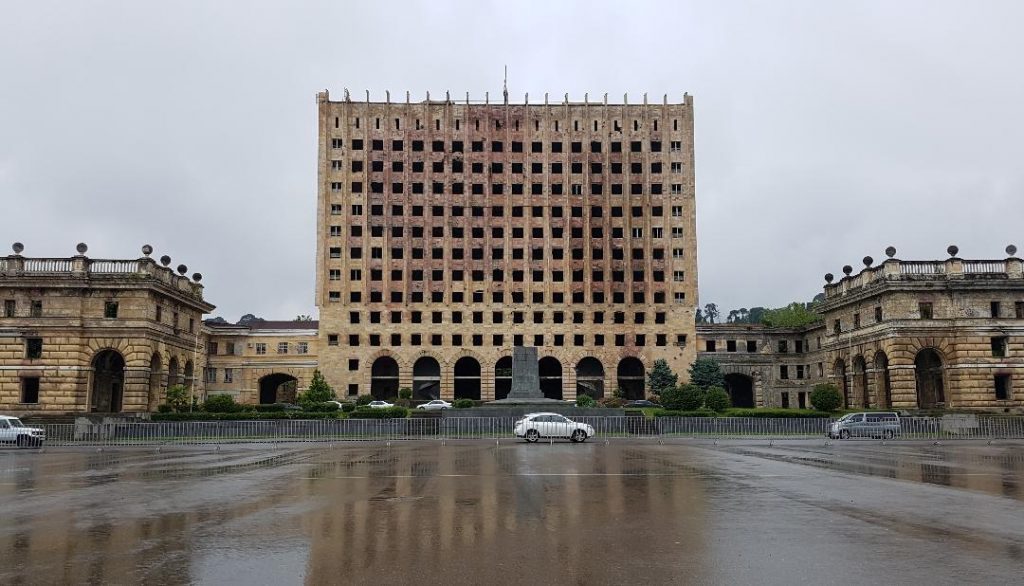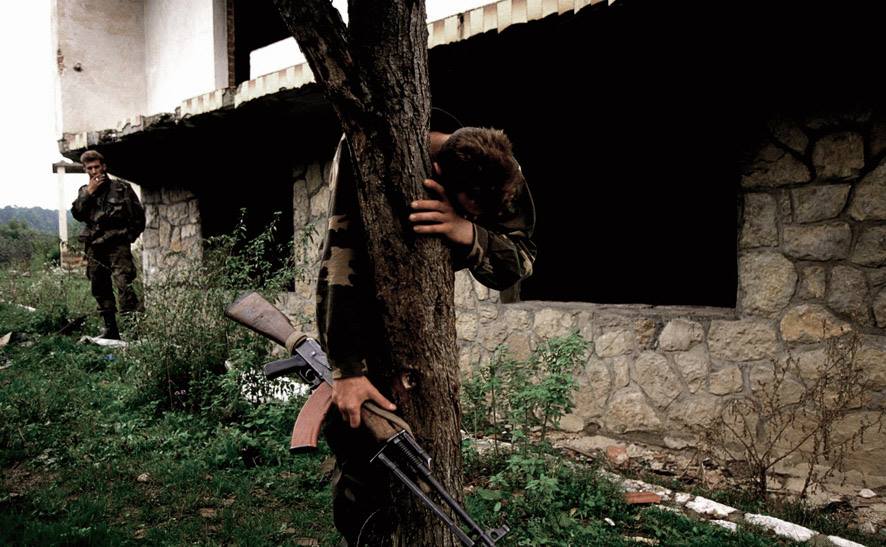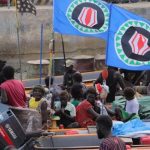Written by Joel, our man in Soviet Europe.
I’ve always had an obsession with both military history and international conflict. This obsession has seen me travel to multiple war zones, frozen-conflict zones, and former war zones, in order to see the situation and its effects up close for myself. This all in an attempt to understand them better.
Recent examples include FARC territory in Colombia, Abkhazia and its lawless border regions, the West Bank and the countries who tore each other apart in the Yugoslav wars. Family and friends who prefer relaxed beach holidays regularly freak out when I tell them of my latest destination, understandably, because conflict zones are certainly a ‘unique’ choice of destination.
Luckily, YPT specialises in ‘unique destinations’.
I have decided to write this article based on my personal experiences, on some important rules and ethics to abide by in a war zone.
With the right preparation, an open mind and some luck, conflict zones can provide the intrepid and adventurous traveller with an eye-opening, unique experience.
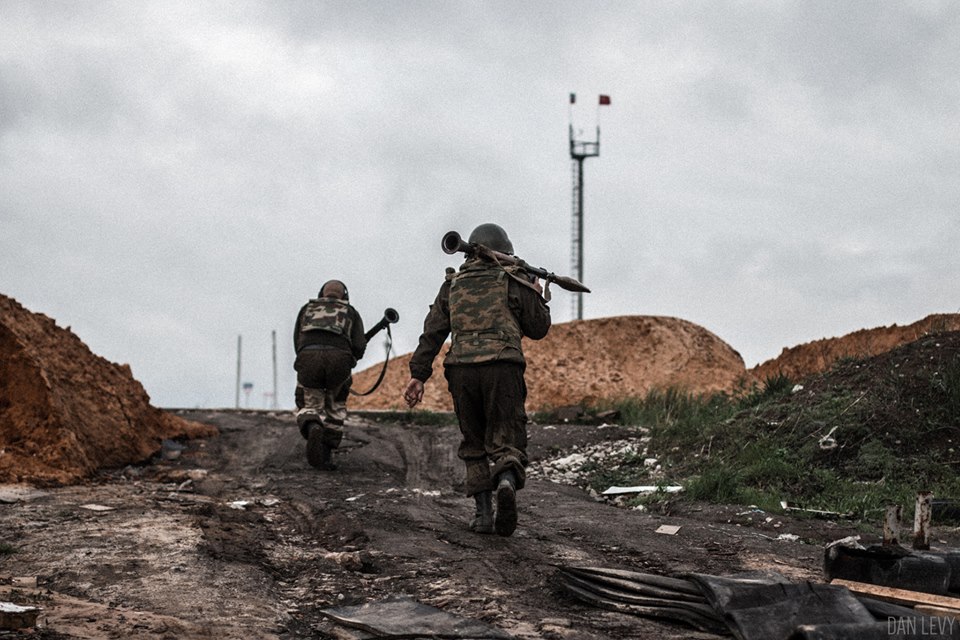
Travel with an open mind, interact with locals and avoid heated political debates:
One thing I have learned about conflict zone travel is to leave any preconceived ideas or bias you have at the airport. You will likely find that the situation on the ground is a world away from what is reported by the media. Interact with locals, through them you can gain an insight and chance of understanding the conflict or problems faced by the country. Of course, each person will have their own bias or opinions and these can be vastly different, the Balkans is a prime example. When speaking with locals, listen, but do not actively engage in political debate. War can summon the worst hatred and anger imaginable. As a foreigner, there is a small chance you may be subjected to verbal frustrations of people based on the actions of your government or their foreign policy, but on the whole, you will be respected for leaving the comfort of your home to see the situation on the ground. Also, getting educated by a local on common scams and dangers as well as potentially volatile developing situations on the ground is valuable and a good way to travel, wherever you are in the world.
Personal advice:
It is very unusual for non-combatants to be wandering around war zones, as a result, there are some personal rules you should abide by.
- Ensure a reliable and trustworthy person is informed of your travel plans with information such as your plan for each day, details of people you plan to meet with and your expected return. Do not publically inform the world of your travel details on social media, leave it until you are home.
- Keep a low profile and downplay that you are a foreigner. One option is to analyse locals and dress like them, clothes will likely be cheap. Dressing modestly will avoid unwanted attention. Don’t wear expensive jewellery, designer products. When carrying camera equipment, wrap some electrical tape and masking tape around the body so it doesn’t look as attractive as a shiny new camera.
- Be wary of your alcohol intake. Alcohol can impair your judgment and make you less aware of your surroundings and people around you. For example, in places such as South Colombia, bars and restaurants frequented by the few tourists that venture to the South of the country, are sometimes watched closely by spotters looking for potential victims, who they know may be intoxicated when they leave, especially late at night.
- Always carry a portable battery pack, first aid kit and a dual sim mobile phone fitted with your ordinary sim and a local sim. Keep it charged and ensure vital people have your local number.
- Vary your pattern-of-life and avoid setting a routine. If possible, take different routes to frequently visited locations, don’t travel at the same time of day, eat at different cafes and restaurants, and consider changing hotels a few times during your trip.
- Do not photograph military checkpoints, roadblocks, facilities or sensitive areas like bridges, border checkpoints, communications facilities and airports. When in doubt, ask for permission beforehand. It can sometimes be an offence to photograph these items in certain conflict zones on the suspicion that you are gathering intelligence.
When life goes sideways, be cool:
One of the biggest mistakes I’ve seen people make when travelling is to freak out, become animated or aggressive when faced with a problematic situation. When faced with a situation in a conflict zone, calmness is your best friend. You will get much further be remaining cool, calm and collected and assessing the situation and your plan of action carefully, then if you lose control of your emotions. Stay positive and mentally assure yourself that you will get out of the incident problem-free and you will make it happen.
Unexploded ordnance (UXO) and landmines:
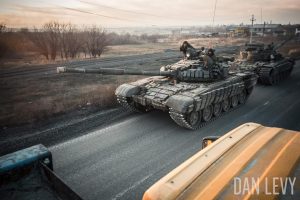
Landmines are one of the most damaging and long-lasting horrors of war and can remain dangerous for decades after the conflict ends.
Mines fall into two categories: anti-personnel and anti-tank. Anti-personnel mines generally are not designed to kill. Maiming an enemy combatant is more effective than killing since resources are needed to evacuate. Anti-tank mines will not normally be triggered if you stand on one. They are designed to be triggered by a vehicle. One other point, if you step on an anti-personnel mine, it explodes immediately. No click or any other warning like you see in the movies.
The best advice for any of these devices is to stay well clear and stick to concrete if possible. There are often warning signs of their presence. This can be as subtle as an untouched field in the midst of heavily farmed area, an abandoned house in a busy district etc. Packing crates for mines or ammunition may be present, where they have been discarded. A convenient path may be disused. Where mines/UXO have been found, the affected area should be marked. Red paint on rocks is a sure sign. Pieces of cloth or cans hanging from a fence is another. Dead cattle or a pattern of craters are also possible. The best source of advice may be from local people. Even if minefields are marked, in time rain and rivers can move devices into other areas. This has been a problem in the Balkans, where death and injury from mines on river banks are common.
Firearms:
When in a war zone, there will be a large amount of firepower on display and sometimes lying around in a relaxed way. This may be a foreign concept to people from some countries, such as Western Europe and the UK. Independent travellers and tourists should not carry weapons. If you carry a weapon, you are not a civilian. You will be designated as an intelligence officer or soldier and treated as such by armed groups. If you are ever handed a firearm for whatever reason, whether it be for a photo op or personal protection, do not touch it. It will not only bring you unwanted attention from rival forces in the area, but also from your home government.
In the unlikely event that you are shot at, move and move fast, across the line of fire and not directly away from the shooting. If you are travelling in a group, scatter in different directions. This will confuse the shooter, long enough to find cover. Remember the ‘three-second rule’ which states that if you need to move to another place of cover, it should not be more than a three-second sprint away.
Borders and roadblocks:
Around the world, not just in war zones, borders and roadblocks are common, not just in war zones. There are a few useful rules for dealing with borders and roadblocks, especially in hostile areas. Firstly, keep your hands in sight to ensure that no one will think you have a weapon ready. Look neutral and pleased to see the people who have stopped you, even if you feel contempt for them. Be polite, regardless of how unfriendly those dealing with you may be. Try to stay in the vehicle. If this is not possible, try to stay together.
